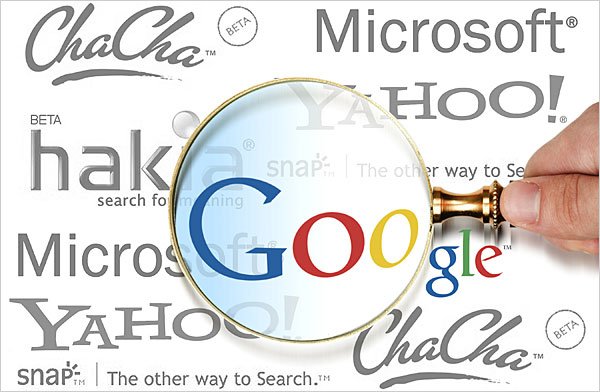For quite some time I’ve been pretty down on GOOG. Not the company, Google, but the stock in it. The reason, I realized, is that I’ve been thinking of Google as a search company and search as a market is largely played out. There’ll be some growth from mobile, though much of it cannibalistic, and some further increases from local and just general demographic shifts as the web insinuates itself further and further into more people’s lives. But overall search will remain an industry measured in the tens of billions for quite some time, and their stratospheric stock prices have left better investments in many other corners of the market.
My thinking might have been wrong though because Google isn’t a search company. Right now they’re a product development company (and generally a poor one) funded by search. In the future, though, they’re going to transition to an artificial intelligence company. They’re already halfway there. Search is just the problem they first applied AI to, and the one they’ve grown to dominate. In the future they will have much bigger fish to fry. While Facebook is still trying to figure how to make money off of people sharing pictures, Google may be revolutionizing one industry after another by pushing the bounds of what software can do.
Take the automotive industry. That’s nearly two orders of magnitude larger than search. To put that another way, if Google managed to scoop up just 2% of that industry they’d have more than doubled their revenue. With their driverless car project, I think they’ve got a shot of taking a much bigger slice of the pie than that.
Imagine a world in which all cars drove themselves. Seriously think about the ramifications. Here are just a few:
1. Cars may be cheaper and/or higher markup. Mechanical drivers will eventually reach a point where errors are no longer a common occurrence, and as a result, safety regulations (which currently add significant expense to cars) could be greatly relaxed. The conversion to electric cars (which will have to occur, as fossil fuels won’t be able to accommodate the meteoric rise in drive time) will also eliminate expensive exhaust systems.
2. Children could own cars. Don’t feel like schlepping your kid to soccer practice? Just buy them a car. Age restrictions on driving only exist because children can’t be trusted not to kill themselves or others on the road. If a machine is driving for them that’s no longer an issue. Parental controls will easily alleviate other concerns.
3. The beverage industry will grow. Designated drivers are a thing of the past. Go to the bar, get wasted, have your car take you home. Hell, get a rum and Coke to go on your way out the door. How many times have you had a beer or two less than you wanted to because you knew you had to drive home? Never again.
4. Speed limits will be unnecessary. A mechanical driver processes information so close to instantaneously that mechanical limits will be the only factor restricting speed. Cars that can travel at 200 mph will become common and fetch premiums.
5. Traffic, too, will become a thing of the past. Slowdowns are caused entirely by human error. Accidents, people stopping abruptly, merging poorly, etc. Intelligent routing and better driving will mean that you’ll maintain top speed throughout your trips.
6. The map will shrink greatly. Right now I live about 30 miles from my office and the commute is on the very edge of what I can stand. Make my car driverless (freeing me up to watch TV, read a book, catch up on emails, etc.) and able to travel at twice the speed, and spend the entire trip at top speed (rather than slowing down and speeding up on the highway) and I could feasibly live as far as 100 mph away. Since the area of a circle is proportionate to the square of the radius my possible housing locations just grew by about 11x.
7. Urbanization will reverse. Why pay $3,000/month for a flat in Manhattan when you can get from 100 miles upstate to work in 30 minutes? That’s enough time to watch The Daily Show on the way in anyway.
8. Airlines will be devastated. Why fly from New York to Chicago? Just hop in the car, watch a couple movies (on the screen that is mounted where Wikipedia says that something called a “steering wheel” used to be) and you’re there.
9. Other forms of public transport won’t fare much better. A driverless cab won’t cost much more than a bus (which also will be driverless) but will be a hell of a lot nicer. Don’t even get me started on subways.
I could go on but you get the point. Whoever invents the driverless car is going to make a lot of money. Possibly more than anyone has ever made before by an order of magnitude. This could be Google. I’m not saying it will be them. There’s far too much standing in between us and the driverless future to predict something like that accurately, especially since many of the obstacles are governmental. But it does seem as if it almost has to happen eventually, and right now they’re probably the frontrunner.
And that’s just one industry. Imagine customer service. A program that could do as good of a job as a real call center rep could simultaneously decrease costs and improve service. It would replace millions of employees nearly overnight. How much could that make? There’s almost no industry that can’t be greatly improved by AI.
So while as a search or mediocre product development company GOOG is starting to like more like a blue chip, I think as an AI company, Google has a shot of generating massive growth.


Comments